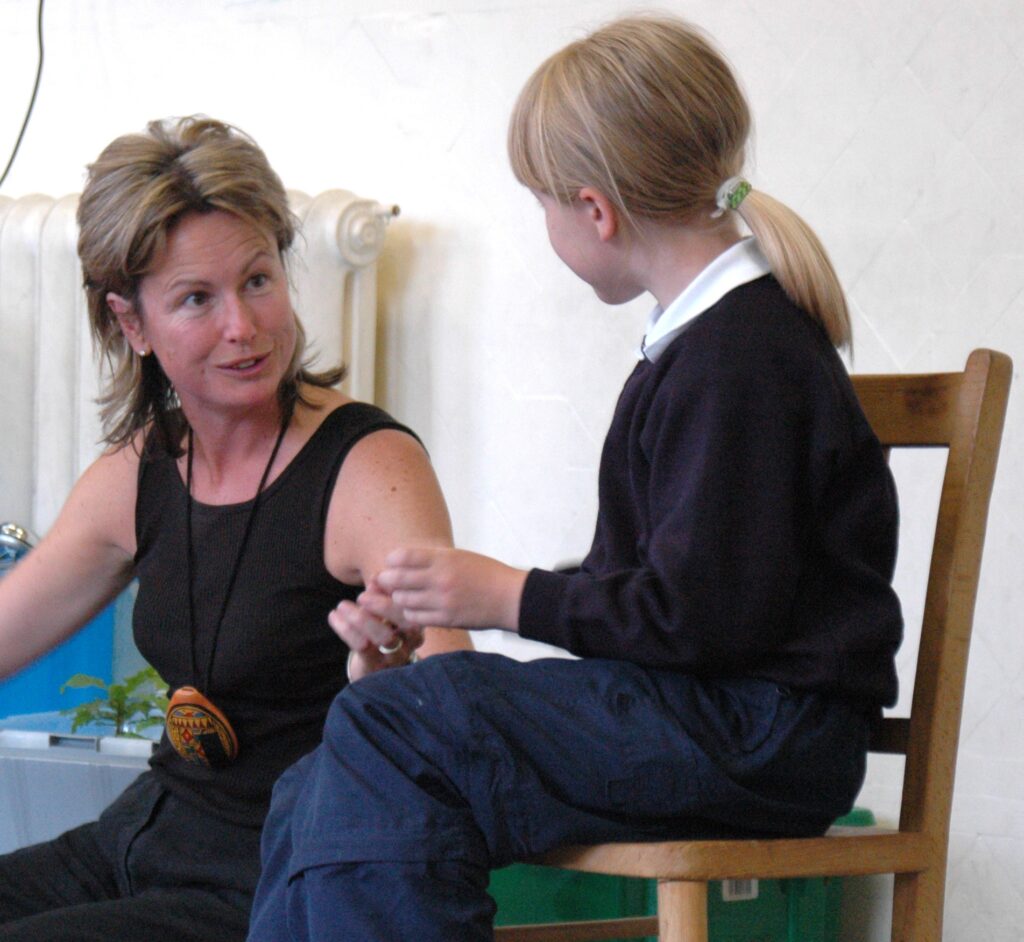The move from primary to secondary school is a massive stepping stone for a child. Theatre and drama play a key role in easing that transition, argues Dr Ava Hunt

The transition from primary to secondary school is a significant milestone in a child’s educational journey. It’s a period that often brings a mixture of excitement and anxiety as children face new environments, different routines, and increased academic pressure.
Amidst these changes, theatre and drama can play a crucial role in supporting children’s wellbeing… providing them with tools to navigate this transition with confidence and resilience.
Why? Because theatre and drama activities offer a unique platform for self-expression, allowing children to explore different facets of their personality in a safe and supportive environment. Through role-playing and improvisation, children can experiment with various scenarios and responses, which helps them to gain a deeper understanding of their own emotions and reactions.
This process increases self-awareness and builds self-esteem, as children receive positive reinforcement for their creative efforts.
Participating in drama encourages children to step out of their comfort zones and take on new challenges. The skills acquired in drama—such as public speaking, body language, and vocal projection—are invaluable for children’s overall development and can be particularly beneficial as they adapt to the larger and more demanding environment of secondary school.
Moreover, the process of participating in drama increases a sense of community and belonging – helping children to form new friendships and strengthen existing ones. In a drama setting, children learn to appreciate different perspectives and develop empathy by stepping into the shoes of various characters. This ability to understand and relate to others’ experiences is crucial for developing their emotional awareness, gaining self-confidence, building meaningful relationships and navigating the social dynamics of secondary school.
Creative thinking…
Drama activities stimulate creativity and critical thinking, encouraging children to approach problems from different angles and develop innovative solutions. The imaginative nature of theatre also fosters a love for storytelling and language, which can translate into improved literacy skills and a greater interest in reading and writing.
“Drama has been reported to promote emotional awareness and
empathy and improve well-being and communication” (Barnes, 2014) [i]
Numerous case studies and testimonials highlight the positive impact of theatre and drama on children’s wellbeing during the transition to secondary school. For instance, a study conducted by the National Theatre in the UK found that children who participated in drama activities exhibited improved self-confidence, social skills, and academic performance.
“Results from over 3000 studies identified a major role for the arts in the…
promotion of health.” (WHO Report, 2019)[ii]
Bringing drama to life
Of course, achieving all of this within the confines of schools which face budget constraints, as well as the challenge of having teaching staff with the specific experience (or time!) to make it happen. Which is why my own theatre company (Ava Hunt Theatre CIO) was set up… to take theatre and drama in to schools in the form of high-quality theatre and education workshop experiences for young audiences – winning a number of awards along the way for our work.
We’re based in Crich in Derbyshire, and we know from talking to head teachers locally some of the challenges they face with some pupils: anger that is often being expressed as violence and aggression; wellbeing, anxiety and depression – sometimes being further aggravated by bullying on social media as a result of missing out on socialisation skills caused by Covid lockdowns.
We shouldn’t be surprised at this, as this is reflected more widely by levels of anxiety, depression and even suicidal thoughts for young children increasing across the UK (Newlove-Delgado et al., 2021). It is reported that one in seven primary-aged children experience a mental health disorder in the UK (NHS Digital, 2021).
Supporting wellbeing
So, how can drama play a part in addressing some of these challenges?
Theatre and drama offer a multitude of benefits for children transitioning from primary to secondary school. By building confidence, enhancing social skills, managing stress, and promoting academic engagement, drama provides a holistic approach to supporting children’s wellbeing.
Through theatre, children can navigate the challenges of transition with resilience, creativity, and a sense of belonging… setting the stage for a successful and fulfilling educational journey.
Our own experiences have demonstrated just how this can be achieved. Last year Ava Hunt Theatre tried out drama workshops supporting the children to be more aware of their feelings, and to take positive approaches to support their wellbeing. For example: exercise, creative/arts, music/dance.
Children commented that the workshops had “taught me ways to feel better”, contributing to improvements in “my mood and new things to relax”. The head teacher noted that the workshops “were very positive at getting children to discuss their thoughts and feelings. The staff felt they were getting better at this as the weeks went on”. The class teachers observed changes in the children’s behaviour, saying workshops had created “lots of discussion”, were “thought provoking” and that “some children have become more confident”.
This June 2025 the company will be touring “Way Too Cool”, a new musical adventure designed to resonate with children in their final year of primary school. It follows Marley and Henry, two friends, navigating the complexities of friendship, change, and personal growth as they approach the transition to secondary school. The story tackles themes such as empathy, wellbeing, and the emotional challenges that children face as relationships evolve.
With engaging music, songs, dance “Way Too Cool” has an interactive format – one that is fun and exciting and contains important themes to spark discussions about wellbeing, transition, and friendship in the classroom.
If your school would like to take part, I’d love to hear from you!
“Way Too Cool” performances and Wellbeing & Transition Drama Workshops are available to book this June by emailing: info@avahunt.co.uk
[i] J. Barnes (2014) Drama to promote social and personal wellbeing doi: 10.1177/1757913912469486.
[ii] What is the evidence on the role of the arts in improving health and well-being? A scoping review (World Health Organization, 2019)









